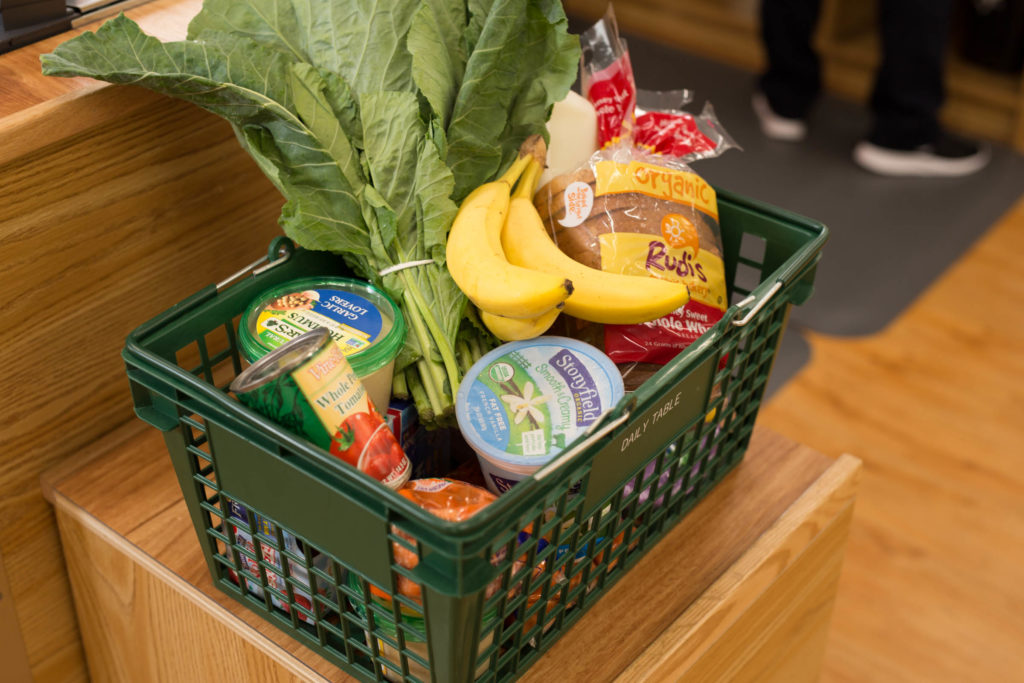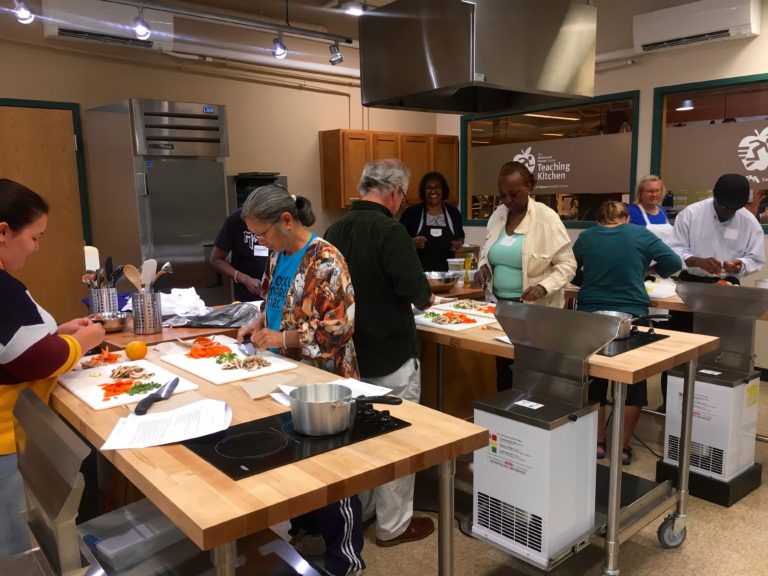The Interview with Doug Rauch

How did you end up in the grocery business?
Sheer serendipity. I had applied to graduate school and while I was waiting to hear back, I heard from a friend who was General Manager at Erewhon (one of the original natural food companies that started in a tiny storefront on Newbury Street) who told me about their warehouse operations in Los Angeles and said, “Hey, why don’t you come help us out while you are waiting around?”
Given I was already in LA, I visited and really liked what I saw. I started working there and was inspired by the other young, idealistic people around me. I ended up staying for 3½ years and really got to learn the food business during the early days of the organic food industry. Erewhon scripted some of the original guidelines for what it meant to provide high quality organic food. It was all very proactive.
Unfortunately, Erewhon fell on hard times and the west coast division was sold. Out of the blue, I reached out to Joe Coulombe, the original Trader Joe, who asked me out to lunch and offered me a job. I liked the culture, the interest in natural food, the funky wine shop, and especially their industry reputation for being honest and direct.
When did you get the idea for Daily Table?
I finished up an Executive MBA at Claremont’s Drucker School of Management while still affiliated with Trader Joe’s. The CEO at the time asked me, “Now that you have all this business school experience, why don’t you put it to use and write a business plan for us to grow beyond California?” Long story short, I did and then moved with my family to Boston to run the expansion. I retired in 2008. Boston had become my home. I was already Chair of the WBUR board and was active on a few others, but I got the opportunity to participate in the newly created Advanced Leadership fellowship at Harvard. It was an amazing chance to be part of a cross-sector group of notable leaders – from government, business, the social sector – and to try to tackle some major social issues and take full advantage of the wide variety of resources Harvard had to offer.
 The issue of hunger kept showing up on my radar around that time. It seemed I was always getting mailers on the topic so I started doing a lot of reading, trying to get my arms around the size of the problem and ways that communities were trying to address it. I knew from my days in the grocery business that in the US there was no lack of food itself. In fact, there was excess food and plenty that went to waste.
The issue of hunger kept showing up on my radar around that time. It seemed I was always getting mailers on the topic so I started doing a lot of reading, trying to get my arms around the size of the problem and ways that communities were trying to address it. I knew from my days in the grocery business that in the US there was no lack of food itself. In fact, there was excess food and plenty that went to waste.
My research and time at Harvard led me to a new understanding of the problem, which led to a few founding principles, or beliefs, if you will: 1) hunger in America is primarily not a shortage of calories, it’s a shortage of nutrients; and 2) dignity is a fundamental and inviolable human need. These together would ultimately lead me to found Daily Table (DT), which in a nutshell strives to provide accessible and affordable nutrients in the most dignified manner possible: a hunger relief effort that “masquerades” as a food market.
Now that your store is open, what do you and your team hope to accomplish?
Beyond providing highly nutritional food at prices even the food insecure can afford, what we focus on most – and work hardest at – is to make sure every customer is treated warmly every step of the way. This store is their store. Our community is part of their community, and they should feel that every time we interact with them.
Another thing we value and place a lot of emphasis on is providing life skills training to our employees. This isn’t customer service training I am talking about, nor is it the professional development opportunities we offer. This is about the development of every person who works at DT as a person. It’s an investment in the person they want to be, beyond who they are as a staff member. It’s part of our core and our culture and our commitment as a community member to invest in other members of our community. We offer them classes in legal literacy and personal finance 101 and how to interview. We give them information they can use to navigate through life. That’s a bit different than most organizations you come across.
How have you used your TPC grant?
 We have used TPC funds to bridge a portion of the operating deficit we incur simply by running the Dorchester store and to underwrite some start-up costs associated with our second location, which is expected to open by year-end in Dudley Square (Roxbury).
We have used TPC funds to bridge a portion of the operating deficit we incur simply by running the Dorchester store and to underwrite some start-up costs associated with our second location, which is expected to open by year-end in Dudley Square (Roxbury).
The good news is that our grocery operations in Dorchester are already breaking even and maybe even generating a small surplus. However, the prepared food operations have yet to reach that point – and providing ready-to-eat meals that are nutritious but competitive with fast food is an essential part of our mission. But we fully expect them to once we are able to spread those costs across more stores.
I know that one of your operational goals is to become financially self-sufficient at some point. How far away is that and, in the meantime, how much do you rely on annually to fund operations?
Our financial models tell us that we need three stores to fully break even. When it came east in 1996, it took Trader Joe’s 21 stores to reach that point. Our new store in Dudley should be open by year-end, which will help us bring our cost coverage ratio from about 66% to 87% (of costs being covered by store-generated revenue). We know that in the hunger relief realm this would be world-class economic performance. Every philanthropic dollar received currently yields 10 nutritional servings. With our second store we believe this will increase to 30 servings for every dollar received.
As for our current funding shortfall, we will probably run to about $750,000 this year. About a third of that amount is due to unexpected engineering site issues at Dudley that have delayed our opening. But we already have a number of grant applications out to cover most of the shortfall. Next year, with Dudley fully operational for most of the year, we expect the gap to shrink considerably.
Is there anything else you hope to gain from your relationship with TPC? Are there other ways that TPC members could help you?
Obviously, funding is key until we can get the hub and spoke model built out and we get to demonstrate our model of economic self-sufficiency. We can also always use volunteers. We have a steady group that already contributes about 250 hours a week, but there is always more than enough work to go around – particularly because we try to keep our staffing lean.
We would also love some advisers who have expertise in Human Resources or Finance. We could use the insight of an experienced CFO. Solving logistical problems is another critical area for us.
Your own passion and commitment to your mission is so clear. And your involvement with the day-to-day obviously brings you a lot of joy and satisfaction. But if you had to single out one thing that is most gratifying about your work, what would it be?
Oh, me. It would have to be the people I come into contact with at the store or in the neighborhood… the ones who share their stories and tell me something about how Daily Table has changed their life for the better. They can finally afford to feed their kids what their doctors say they should eat. Those moments are incalculably gratifying for me. They really carry me forward. As they say, “You save one life, you save the world.” At those times, my work with Daily Table really feels that monumental to me. I feel so blessed.

